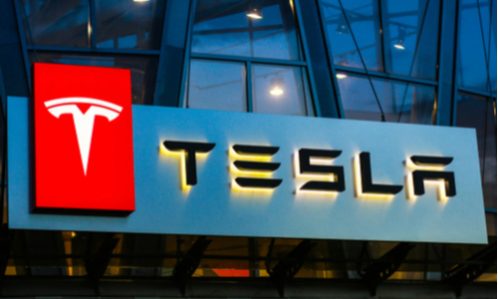
India is being seen as the next major growth market for electric vehicles (EVs), and the country’s government is now considering implementing a new policy that could slash import taxes for car manufacturers that commit to local manufacturing.
According to Reuters, the policy being floated would reduce the current import tax on EVs from the current 100% rate to as low as 15%. This could result in a massive gap in cost for imported EVs, giving local car makers an edge on the competition as they continue to invest in local manufacturing.
Tesla, the world’s foremost EV manufacturer, could be the biggest beneficiary of the new policy should it be passed. Currently, Tesla tried to enter India by pushing to lower the 100 percent import tax for EVs, but the talks have collapsed in the past. However, the new policy, which could reduce the import taxes for EVs conditional on a local manufacturing commitment, could be the key to Tesla’s success.
Tesla has told Indian officials that it is ready for full-capacity operation in India by 2030, and even plans to set a new EV at a reduced price of $24,000, a 25-percent discount from its current entry model. Rohan Patel, Tesla’s senior public policy and business development executive, has been talking to Indian officials about the proposal privately, and Prime Minister Narendra Modi has been tracking the progress closely.
Read more: Dutch Watchdog Looks Into Tesla For Data Breaches
Aditya Kalra, Company News Editor for Reuters in India, states: “India is inching closer to a potentially game-changing policy that could slash import taxes for carmakers that commit to some local manufacturing. It could mean a huge boost for Tesla and other EV manufacturers who want to enter the Indian market. But Indian officials have said they will move slowly in considering the policy proposal, as any lowering of taxes on imported EVs could disrupt the market and upset local players like Tata and Mahindra that are investing to build electric cars at home.”
Outside of the United States, Tesla already has plants in both Shanghai (its largest factory worldwide) and Berlin. It is also building a new plant in Mexico to focus on its next mass-market EV platform, which CEO Elon Musk says will result in major cost savings for consumers around the globe.
Ultimately, the verdict of the new EV policy proposal is yet to be seen, and while it could be a game-changing opportunity for Tesla and other international carmakers to enter the Indian market, local manufacturers are still investing in their own electric vehicles. It will be interesting to see the long-term outcome this policy could have on the EV industry in India.
Source: Reuters
Featured News
Big Tech Braces for Potential Changes Under a Second Trump Presidency
Nov 6, 2024 by
CPI
Trump’s Potential Shift in US Antitrust Policy Raises Questions for Big Tech and Mergers
Nov 6, 2024 by
CPI
EU Set to Fine Apple in First Major Enforcement of Digital Markets Act
Nov 5, 2024 by
CPI
Six Indicted in Federal Bid-Rigging Schemes Involving Government IT Contracts
Nov 5, 2024 by
CPI
Ireland Secures First €3 Billion Apple Tax Payment, Boosting Exchequer Funds
Nov 5, 2024 by
CPI
Antitrust Mix by CPI
Antitrust Chronicle® – Remedies Revisited
Oct 30, 2024 by
CPI
Fixing the Fix: Updating Policy on Merger Remedies
Oct 30, 2024 by
CPI
Methodology Matters: The 2017 FTC Remedies Study
Oct 30, 2024 by
CPI
U.S. v. AT&T: Five Lessons for Vertical Merger Enforcement
Oct 30, 2024 by
CPI
The Search for Antitrust Remedies in Tech Leads Beyond Antitrust
Oct 30, 2024 by
CPI